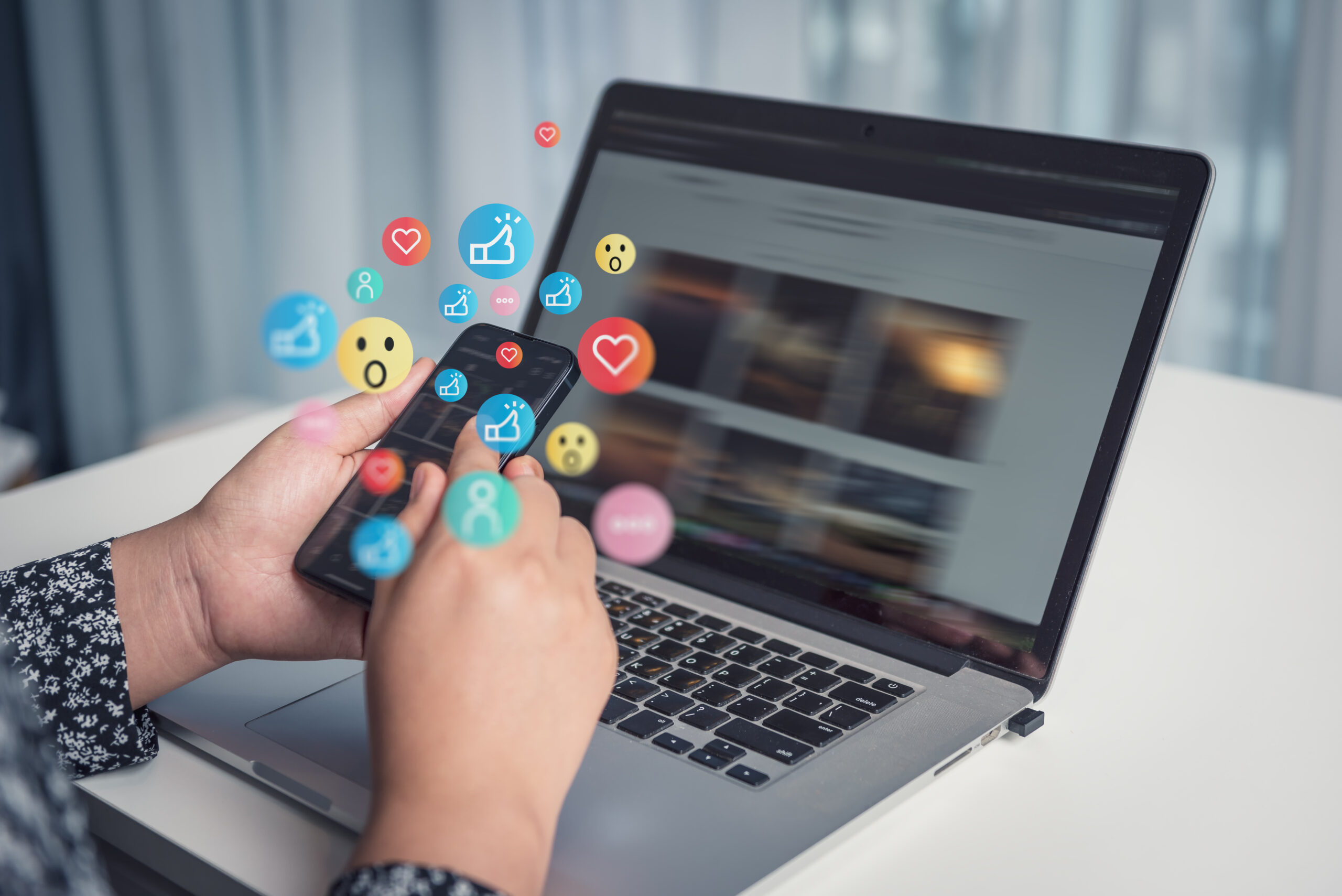The Impact of Social Media on Healthcare and Pharmaceutical Class Actions
Social media has become a powerful tool for patients to share their experiences and connect with others who may be going through similar health issues. This has led to an increase in patient empowerment but also raises questions about legal accountability and the safety and efficacy of drugs.

Pharmaceutical companies now face not only lawsuits from individuals but also class action lawsuits that can result in significant financial damages. With social media providing a platform for patients to share their negative experiences with medication, it is important for pharmaceutical companies to prioritize drug safety and take swift action when necessary.
In this article, we will explore the impact of social media on healthcare and pharmaceutical class actions, including trends in lawsuits against pharmaceutical companies and ways to improve drug safety in the age of social media.
Key Takeaways
- Social media has empowered patients to share experiences and connect with others, leading to a revolution in how healthcare information is shared.
- Pharmaceutical companies must prioritize drug safety and be proactive in managing their online presence to respond to negative feedback and class action lawsuits.
- Companies must navigate strict regulations while engaging with patients through social media, finding the right balance between empowering patients and ensuring legal accountability.
- Patients have more autonomy in researching their own health conditions and treatment options, but this comes with the risk of legal consequences for both patients and pharmaceutical companies in cases of adverse drug reactions or medication issues.
The Rise of Social Media in Healthcare and Pharmaceuticals
The use of social media is skyrocketing in the healthcare and pharmaceutical industries, revolutionizing how information is shared. Patients are increasingly turning to social media platforms for health information, support groups, and even medical advice. This trend has led to an increase in patient engagement with healthcare providers and a more informed patient population.
In addition to patient engagement, social media has also become a crucial tool for online reputation management in the healthcare and pharmaceutical industries. With the rise of online reviews and ratings, companies must be proactive in managing their online presence and responding to negative feedback.
Social media allows companies to connect with their patients and address any concerns or issues they may have publicly, demonstrating their commitment to quality care. As the use of social media continues to grow in these industries, it will be important for companies to stay up-to-date on best practices for effective communication and engagement with patients online.
The Power of Patient Experiences on Social Media
You can't ignore how patient experiences on social media are like wildfire, spreading rapidly and impacting the way people view healthcare. Patient advocacy groups and online communities now have the power to shape public perception of medical treatments, drugs, and even healthcare providers.
Patients now have an avenue to share their stories, connect with others facing similar challenges, and hold pharmaceutical companies accountable for any perceived wrongdoing. The rise of social media has given patients a voice that they never had before. They can now share their experiences with millions of people at the click of a button.
This has led to increased awareness among the general public about specific diseases or conditions, as well as the potential side effects associated with certain medications. Additionally, it has helped to break down barriers between patients and healthcare professionals by providing a platform for open communication and dialogue.
Overall, patient experiences on social media have revolutionized the way we view healthcare and will continue to shape its direction in years to come.
Trends in Class Action Lawsuits Against Pharmaceutical Companies
Get ready to feel outraged - big drug companies are facing more and more lawsuits from groups of people harmed by their products. These class action lawsuits typically involve allegations that the company failed to warn consumers about potential side effects or risks associated with their drugs. The legal ramifications for these companies can be significant, with some settlements reaching into the billions of dollars.
In response to this trend, the pharmaceutical industry has attempted to improve transparency and communication with patients. Some companies have created online portals where patients can report adverse reactions, while others have increased their social media presence in order to engage directly with patients. However, critics argue that these efforts are insufficient and that greater regulation is needed in order to protect consumers from harmful drugs.
As the debate continues, it remains clear that social media has played a major role in bringing attention to these issues and holding pharmaceutical companies accountable for their actions.
Improving Safety and Efficacy of Drugs in the Age of Social Media
Imagine feeling confident in the safety and effectiveness of your prescription medication thanks to increased transparency and communication between drug companies and patients. For example, Pfizer has created an online portal for reporting adverse reactions.
Now imagine the peace of mind that would come from knowing that your voice is being heard and that steps are being taken to improve patient outcomes. This scenario is becoming increasingly possible as social media platforms continue to revolutionize the way that healthcare operates.
However, with these new opportunities come regulatory challenges. The pharmaceutical industry must navigate strict regulations regarding advertising, promotion, and data privacy while still engaging with patients through social media channels.
Despite these hurdles, many companies have responded positively by developing innovative ways to communicate directly with patients about their products and services. Such efforts not only help increase transparency but also provide valuable feedback on how drugs are being used in real-world settings, ultimately leading to improved safety and efficacy for all users.
Balancing Patient Empowerment with Legal Accountability
Finding the right balance between empowering patients and ensuring legal accountability is a complex challenge that requires careful consideration.
On one hand, social media has given patients more autonomy than ever before in terms of researching their own health conditions and treatment options. Patients can now engage with online communities to share their experiences, gain support, and find resources that they might not otherwise have access to. This level of patient empowerment is undoubtedly a positive development.
However, with greater patient autonomy comes the risk of legal consequences if patients make decisions based on inaccurate or incomplete information.
In cases where pharmaceutical class actions arise from adverse drug reactions or other issues related to medication use, it can be difficult for both patients and pharmaceutical companies to navigate the complexities of legal liability.
While social media has made it easier for patients to share their stories and experiences, it has also created new challenges when it comes to balancing patient empowerment with legal accountability.
Frequently Asked Questions
How do social media platforms ensure the accuracy and reliability of health-related information shared by users?
Social media platforms ensure the accuracy and reliability of health-related information shared by users through community guidelines, fact-checking processes, and user responsibility.
What are some examples of successful social media campaigns launched by healthcare or pharmaceutical companies?
Examples include Pfizer's #QuitSmoking initiative, which helped thousands quit smoking, and Sanofi's #MigraineTruth campaign which raised awareness about migraines. These campaigns have successfully served their audiences while also benefiting the companies' reputations.
How do class action lawsuits against pharmaceutical companies impact the development and availability of new drugs?
Class action lawsuits against pharmaceutical companies can have legal implications and impact innovation by deterring investment in research and development. This can lead to fewer new drugs and longer waits for patients needing treatment.
Can social media be used to detect and report adverse drug reactions more effectively than traditional methods?
Improved pharmacovigilance through patient empowerment is possible with the use of social media. It allows for real-time reporting and monitoring of adverse drug reactions, making it a valuable tool in ensuring drug safety and patient well-being.
What role do healthcare providers and regulators play in monitoring and regulating the use of social media in the healthcare industry?
It's the healthcare providers' and regulators' responsibility to ensure that social media is used ethically in the industry, keeping patient safety at the forefront of all decisions.
Conclusion
Social media seems to be a blessing and a curse for the healthcare and pharmaceutical industries.
On one hand, it empowers patients to share their experiences and hold companies accountable for any harm caused by their products.
On the other hand, it can lead to an influx of class action lawsuits that drain resources and damage reputations.
It's ironic how social media, which was meant to connect people and improve communication, has also highlighted the flaws in our healthcare system.
But perhaps this is a necessary step towards improving the safety and efficacy of drugs.
By balancing patient empowerment with legal accountability, we may be able to create a more transparent and trustworthy system that benefits everyone involved.

This post has been generated by AI and was not reviewed by editors. This is Not legal advice. Please consult with an attorney.




